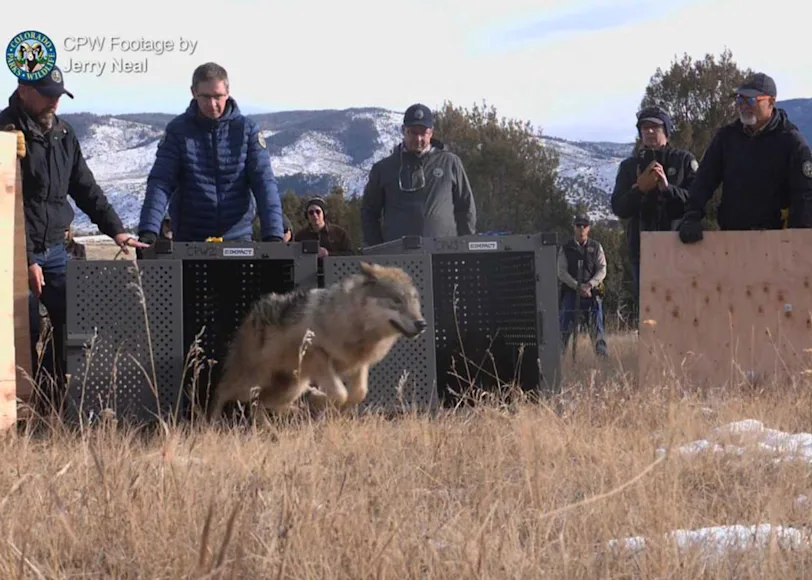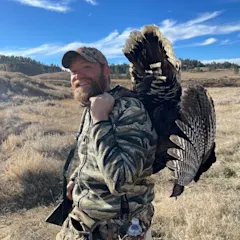In a press release issued on November 13, Colorado Parks & Wildlife (CPW) announced the next steps in its controversial, voter-mandated wolf reintroduction program. The agency is considering releasing wolves into three counties, all on the Western Slope of the Centennial State, the release said. The pinpointed counties for its "2024-25 capture and release season" are Garfield, Eagle, and Pitkin. But Rio Blanco County, known for its legendary elk herds, has been withdrawn from consideration.
By comparison, CPW released wolves into just two counties during its first capture and release season—which ran between December 18 and 21 back in 2023. The 10 wolves released last winter were captured from packs in Oregon. In September, the agency was forced to remove an entire pack of released wolves due to ongoing attacks on livestock in.
According to CPW, the updated list of potential wolf release counties "is the next step in the planning process as the agency assesses sites that meet the stringent criteria set out in the Colorado Wolf Restoration and Management Plan, as well as considers feedback from local elected officials and community members."
An elected official in Rio Blanco County told the Colorado Sun that the thought of state officials releasing wolves in his county "turned his stomach."
"Other states have had their deer and elk herds cut in half by wolves,” Rio Blanco County Commissioner Doug Overton told the newspaper. “This is one of the greatest elk herds in North America. We have a lot of hunting and recreation around here because of that. And they’re just throwing it away because somebody wants to go out in the woods and see a wolf that they’re never going to see anyway.”
Rio Blanco County sits north of Garfield County along the states western border with Utah. The area is known for its trophy mule deer and elk. In its press release, CPW said that Rio Blanco "was removed as a potential location as the ... due to the limited number of state-owned sites that adhered to the criteria in the plan and their proximity to livestock. It also cited "potential impact to elk and deer herds recovering from the severe winter of 2022-23."
“We look forward to continuing our longstanding and productive relationship with Rio Blanco County Commissioners and landowners," said CPW Director Jeff Davis, "as we continue to elevate the importance of these communities and their contributions to Colorado’s natural resource outcomes and overall health to our state."
It's still unclear exactly when CPW will carry out its next round of wolf releases, and what state or tribe will provide captured wolves for the operation. Back in August, the Colville Tribe, based in Washington State, reneged on a plan to provide 15 wolves for future releases in Colorado. Tribe officials said that decision was based on CPW's failure to conduct “necessary and meaningful consultation with potentially impacted tribes” in the southwest Colorado—namely the Ute Mountain Ute and the Southern Ute Tribes.
Read Next: Colorado Captures and Confines Recently Transplanted Cattle-Eating Wolves
According to CPW, wolf releases could begin as early as next month. "Releases will occur annually between December and mid-March," the agency states on its website. "It is anticipated that wolf reintroduction efforts will require the transfer of about 30 to 50 wolves in total over a 3-5 year time frame. Colorado Parks and Wildlife will aim to capture 10-15 wild wolves annually from several different packs by trapping, darting, or net gunning in the fall and winter.


